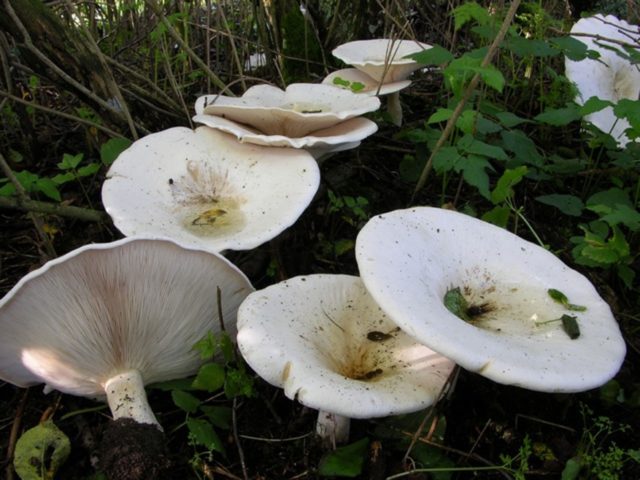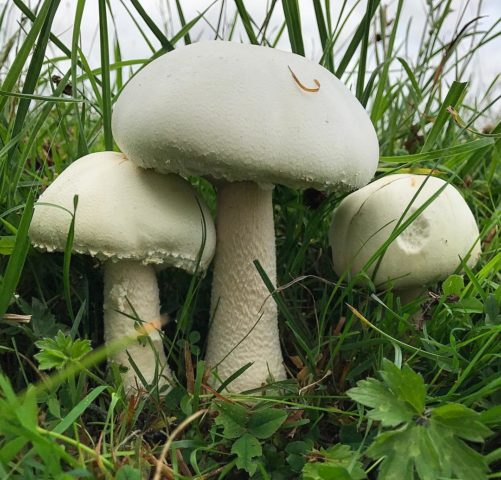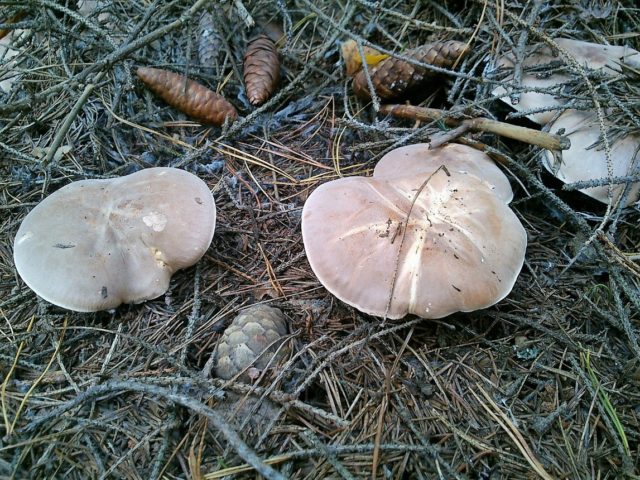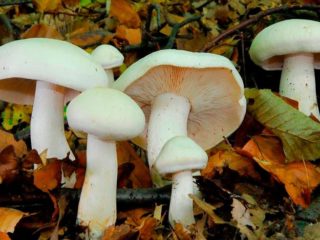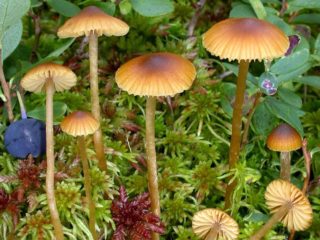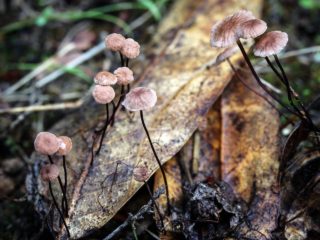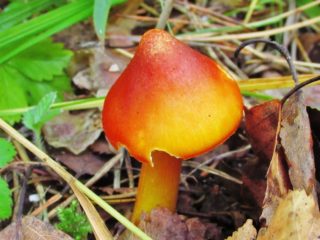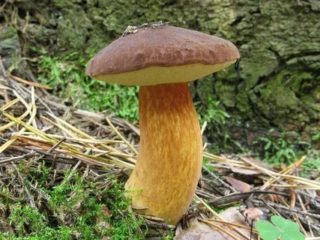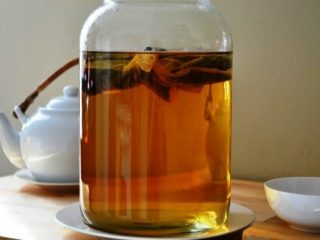Content
Row-shaped pseudo-pig is a rather large and edible mushroom. Belongs to the Tricholomov or Ryadovkov family. The Latin name for this species is Leucopaxillus lepistoides. It also has a number of other synonyms: wen, leucopaxillus lepistoid, leucopaxillus lepistoid, pseudo-pigeon lepistoid, white guinea lepistoid.
Where the pseudo-pig grows
The distribution area of this representative is quite wide, but most often it is found in the temperate climatic zone of Europe. It inhabits various types of forests, and can also be found in pastures, meadows and meadows, prefers moist soil. The optimal time for fruiting is from mid-summer to the first frost. Usually grows in large groups, while forming witch rings.
What does a pseudo-pig look like?
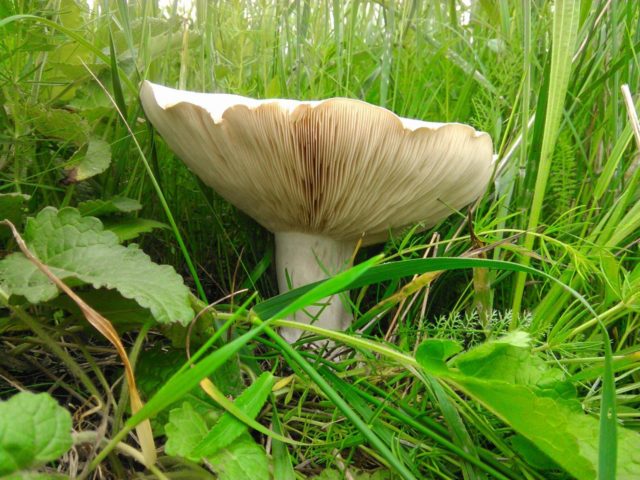
This species almost never occurs alone.
Row-shaped pseudo-pigs can be recognized by the following characteristic features:
- At the initial stage of development, the cap is domed with curved edges inward. With age, it becomes prostrate with a depressed center. The structure is firm, fleshy and taut. Most of the specimens reach quite solid sizes. So, a hat in diameter can be up to 40 cm. The surface is velvety, there is a slight edge at the edges. Painted in white and gray, sometimes with irregular greenish or bluish spots. In older specimens, the depressed center becomes creamy.
- The stem is cylindrical, straight, slightly thickened at the base. As a rule, its color coincides with the color of the cap. The length of the leg reaches about 8 cm, and the thickness in diameter is up to 4 mm. Inside it is dense, fibrous, without voids.
- On the underside of the cap there are wide, frequent plates, slightly descending onto the leg. In young mushrooms, they are painted in a whitish tone, and in mature ones they become creamy. Spores are smooth, ellipsoidal. Spore powder, cream.
- The pulp is elastic, dense, white in color, does not change its color if damaged, does not emit milky juice. It has a pronounced mealy aroma and pleasant taste.
Is it possible to eat a row-shaped pseudo-pig
The species in question belongs to the group of edible mushrooms. Row-shaped pseudo-guinea is suitable for almost any type of culinary processing.
False doubles
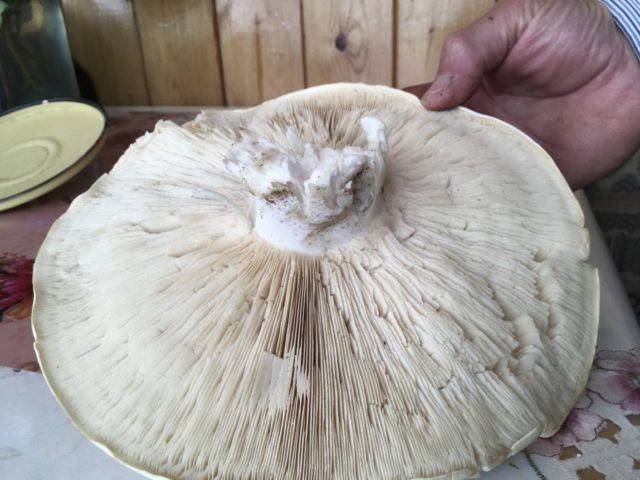
The pulp is never infected by insect larvae
In appearance, the row-shaped pseudo-pig is similar to the following gifts of the forest:
- Giant talker - conditionally edible mushroom, belongs to the 4th food category. In terms of the size of fruit bodies and places of growth, these species are very close. A distinctive feature of the twin is the funnel-shaped hat, which varies in color from white to fawn or cream. In addition, the pulp of a giant talker does not have a pronounced aroma.
- Champignon white - one of the most popular and edible mushrooms. It is similar to the pseudo-pig-like ryadovkovy only in the color of the fruit bodies, otherwise the double is not difficult to distinguish. So, the champignon can be recognized by its more modest size, since the cap reaches no more than 8 cm in diameter. Another feature is the lamellar layer of a pinkish tone.
- White pig gentian - belongs to the group of inedible mushrooms. The size of the cap in diameter varies from 3 to 20 cm. The surface of the cap is colored in brown shades, which makes it distinguishable from the pseudo-pig. However, in adulthood, the double's hat fades and becomes similar to the described species. In addition, gentian white pigs can be distinguished by the bitter taste of the pulp, which is not inherent in the wen.
Collection and consumption
Going in search of a lepistoid pseudo-pig, you should know that this specimen grows in an open area from July to October.
Row-shaped pseudo-guinea has excellent nutritional qualities. No pre-processing is required before preparing any dish from this ingredient. These mushrooms can be served as a main course or as a tasty addition to a side dish. You can use them in any form: salted, pickled, fried, boiled, stewed.
Conclusion
Thus, the pseudo-pig is a valuable fungus, which differs from many of its congeners by the large size of fruit bodies, pleasant taste and pronounced aroma. Another feature of this species is that its fruits are almost never wormy. However, due to the massive plowing of the land, the number of this species has noticeably decreased over several years, and in some regions the wen is under protection.
